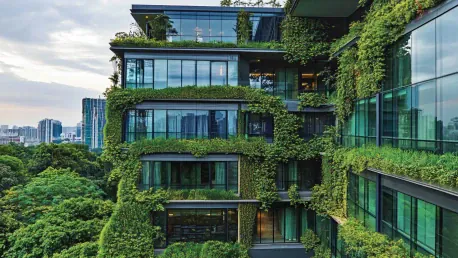Listen to the Article
Eco-friendly practices have only started to emerge recently, as research on how the actions of the modern world are affecting the environment highlights the need for a focus on sustainability.
The utility sector—which brings together water, electricity, gas, and waste management—is no exception to the race for a resilience-driven roadmap. These sectors play a vital role in the day-to-day lives of citizens, but they also have a significant impact on the environment.
It’s more evident than ever that the transition to a greener future isn’t a luxury but a pressing need and necessity to ensure the planet’s long-term health.
So, what exactly is sustainability? It’s characterized by the efficient use of resources, the reduction of the modern world’s on nature, and long-term viability, all of which are now taking the center stage.
This article explores how utilities enterprises, including yours, can integrate sustainability and eco-friendly practices into their operations and contribute to the global efforts for mitigating climate change and its effects on the environment.
1. Energy Efficiency and Renewable Energy Integration
The utility sector’s contribution to greenhouse gas emissions isn’t a small one. These are increasingly worrying to the business world, mainly due to the heavy reliance on fossil fuels for electricity generation. Addressing these issues doesn’t come easy either—energy efficiency and the integration of renewable energy sources like solar, wind, and hydropower have become key points of interest regarding the future. There are some friction-free strategies many of your peers are considering adopting to jumpstart their new innovation journeys.
Energy Efficiency Programs: Some utility organizations are turning their full attention to energy efficiency programs that encourage consumers themselves to find new ways to reduce their energy consumption. They range from residential initiatives (like offering energy-efficient appliances) and lighting to large-scale industrial measures (including retrofitting commercial buildings for better insulation and HVAC efficiency). That’s not all: Many of those who follow this route are starting to provide incentives to consumers who can limit their energy consumption during peak demand times, thus helping stabilize the grid and reduce emissions.
Smart Grid Technology: There’s no progress that can be made on the overall scale of utilities without targeting the infrastructure first, which could lead to significant inefficiencies as the world moves forward with its innovation plans. That’s where smarter grids come into play and take the spotlight. Their future-focused power supports companies with more efficient management of energy use by providing real-time data on electricity consumption. These technologies can help utilities optimize the distribution of energy, reduce waste, and—even more importantly—allow for the easier integration of renewable sources. There’s also the advantage of smart meters decision-makers should keep in mind, which empowers the consumer side of business to also track their energy usage, fostering more sustainable behavior.
2. Water Conservation and Management
The management of water resources is another part of utilities that can’t be left as an afterthought, regardless of whether you’re operating with it directly or using water processes for your manufacturing or power plants. In fact, it’s at the moment still one of the greatest sustainability challenges in the sector. The demand for water is an always-growing one that, coupled with changing weather patterns and the growing concern about climate change, makes it more pressing to adopt the right water conservation strategies.
Water Recycling and Reuse: One key reality affecting both short-term and long-term sustainability is the fact that freshwater resources are limited—and that the world, as it currently is, cannot afford to continuously use them with the mindset of infinity in mind. Utilities are taking action and implementing water recycling programs designed to tackle this issue. These involve treating wastewater with more efficiency than in the past and using it for non-potable purposes (such as irrigation, industrial processes, or even as cooling water for power plants). Reusing water reduces the environmental impact of its extraction on the planet’s resources.
Efficient Water Distribution: Another critical component that adds to water sustainability is that of efficient, accurate distribution. Aging infrastructure makes this difficult—and, more often than not, leads to significant water losses tied to leaks and inefficiencies in the systems. More and more of your peers are fighting against this pain point with infrastructure modernization. They’re replacing old pipes, installing sensors to detect leaks, and using advanced metering technology to monitor consumption and identify future waste.
3. Waste Management and Circular Economy
Water management is as important as energy consumption and efficient water usage to utilities—and the global world. Landfills are still creating massive friction between companies and governments due to their harmful greenhouse gases and contribution to pollution. It’s time to switch to eco-friendly practices and reduce the waste sent to landfills to support a circular economy focused on reintroducing critical elements into manufacturing.
Waste-to-Energy Technologies: There are some promising ways that organizations in your sector are leveraging to address waste management, such as converting waste materials into energy. Waste-to-energy plants are emerging, burning non-recycle waste to generate electricity or heat and redirecting waste from landfills to a sustainability-first alternative. And although waste-to-energy plants have and are still facing their own environmental concerns, advances in technology have led to more efficient and cleaner options that outperform the benefits of the traditional landfill approach.
Recycling and Composting Initiatives: There’s no single way to follow in the fight against climate change. While some are focusing on waste-to-energy, other companies are focusing on enhancing recycling and composting programs for both residential and commercial sectors. Providing accessible recycling bins, improving waste sorting systems, and educating the public are some practices used to accelerate such plans. With these efforts, utilities are diverting large amounts of waste away from landfills to either be reused or composted, unlocking additional benefits such as creating nutrient-rich soil for agricultural use.
In Closing
The past few decades bring to you a grim future: The impact of the modern world on climate change and the environment. With each passing year, the chances to revitalize the planet drop down—and will continue to do so without the right focus on sustainability and educating both the business world and communities. With the demand for utilities still growing, it’s more clear that integrating sustainability and eco-friendly practices is critical for preserving and preparing the planet for the new generations. Many innovators are already shaping greener strategies by embracing renewable energy, water conservation, waste management, and more sustainable infrastructure.
The race is on, and today, it focuses on building a more sustainable and resilient future. This shift not only benefits the environment, but also provides new economic opportunities, enhances operational efficiency, and improves the quality of life for communities. Utilities that prioritize sustainability today will play a crucial role in the new age of humanity’s success.









